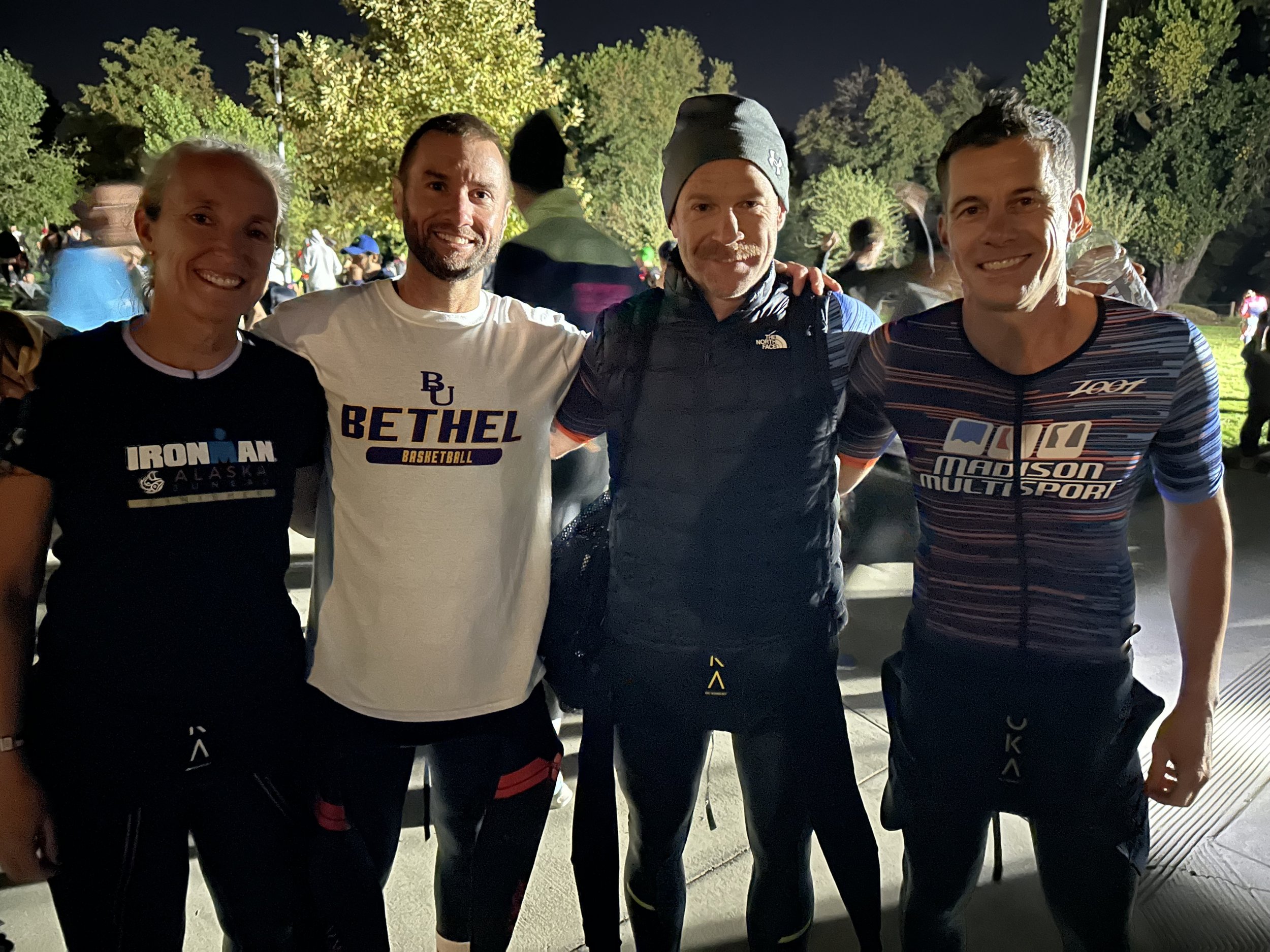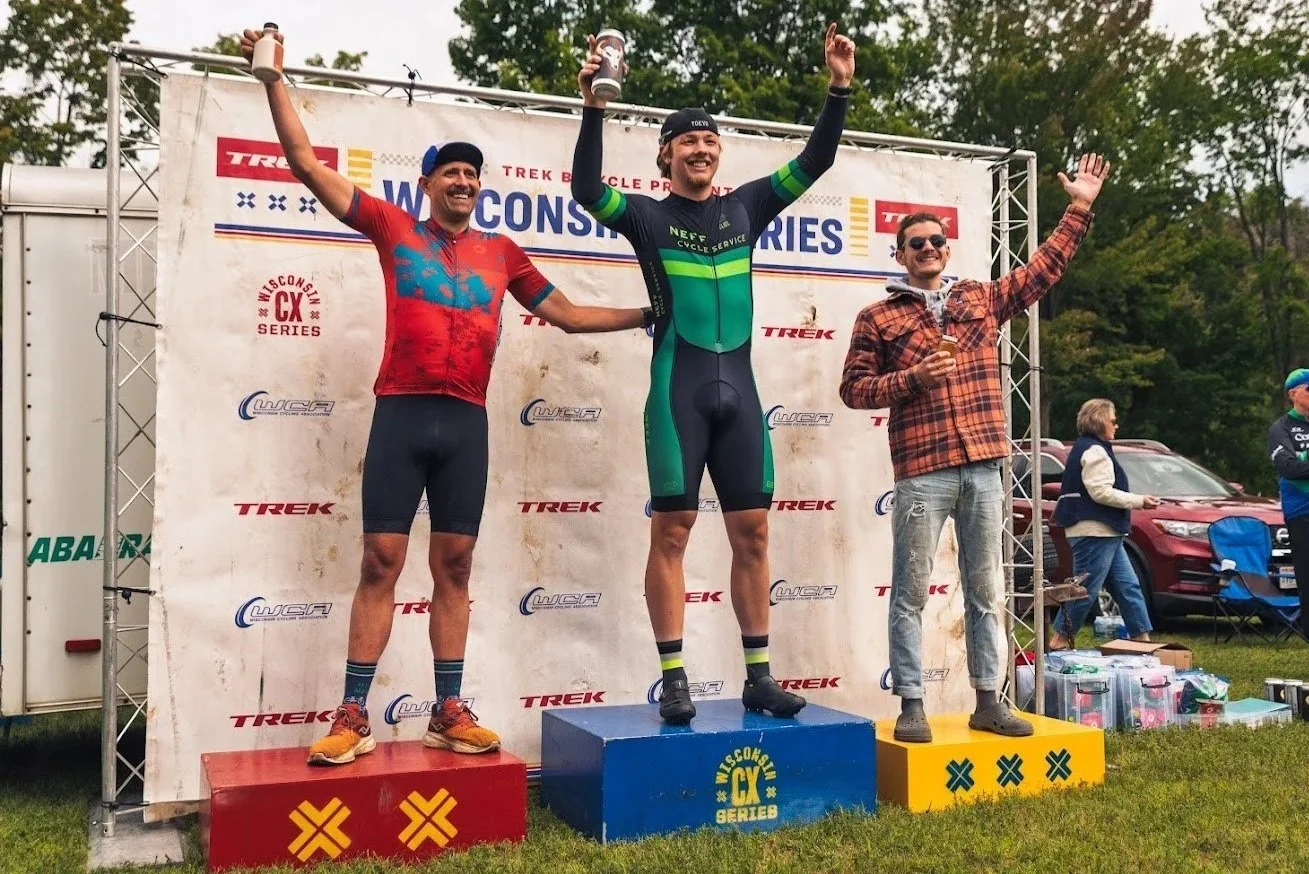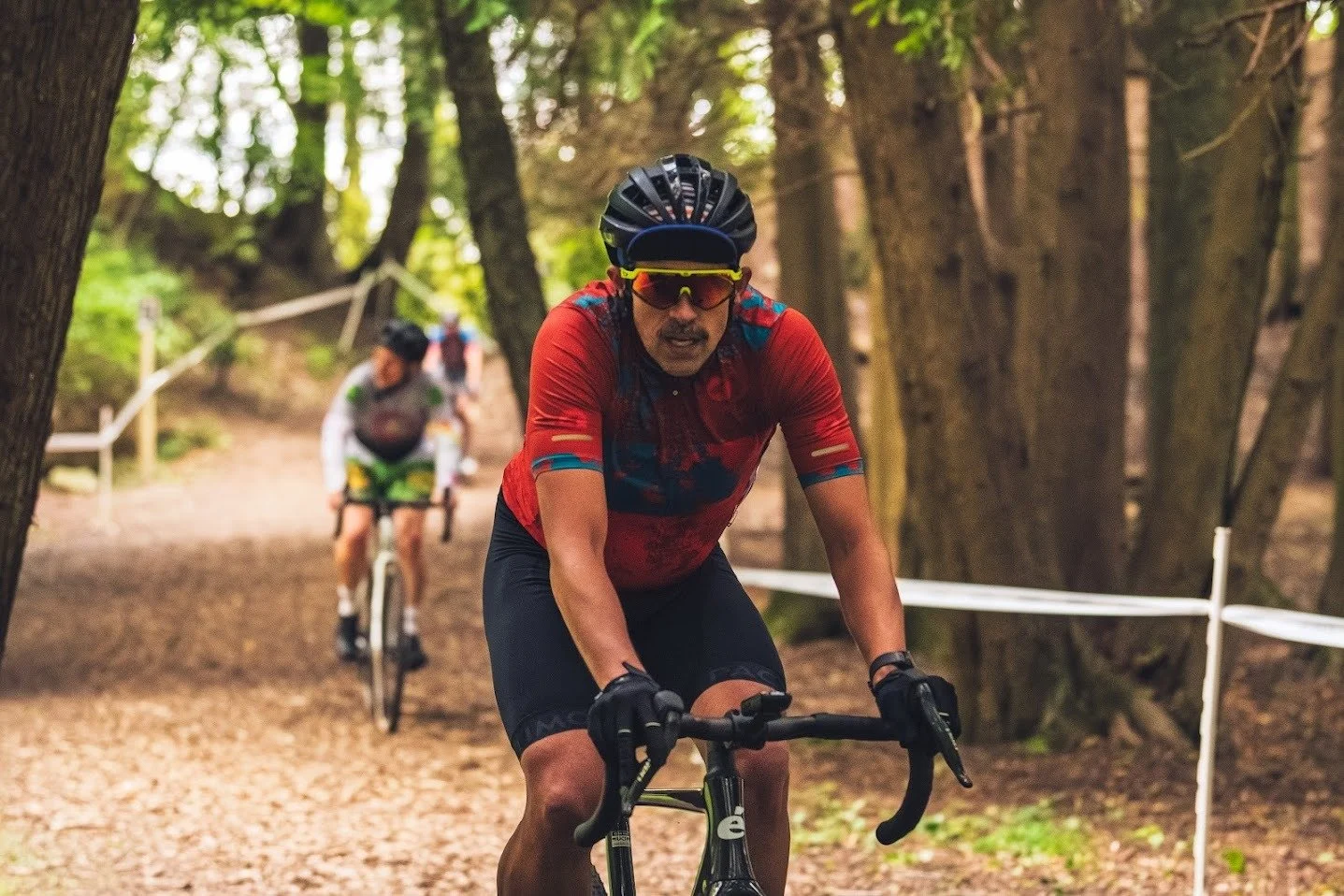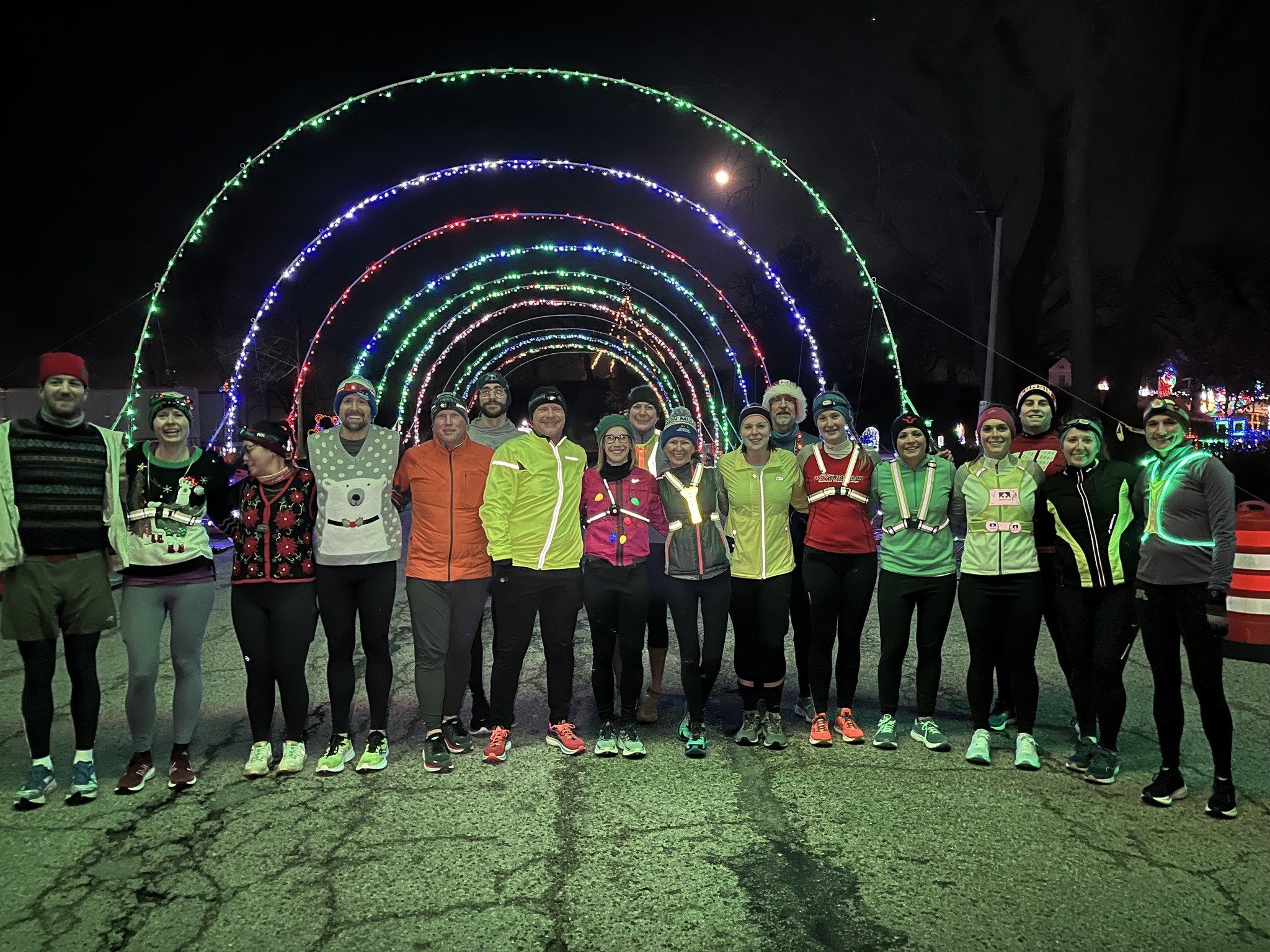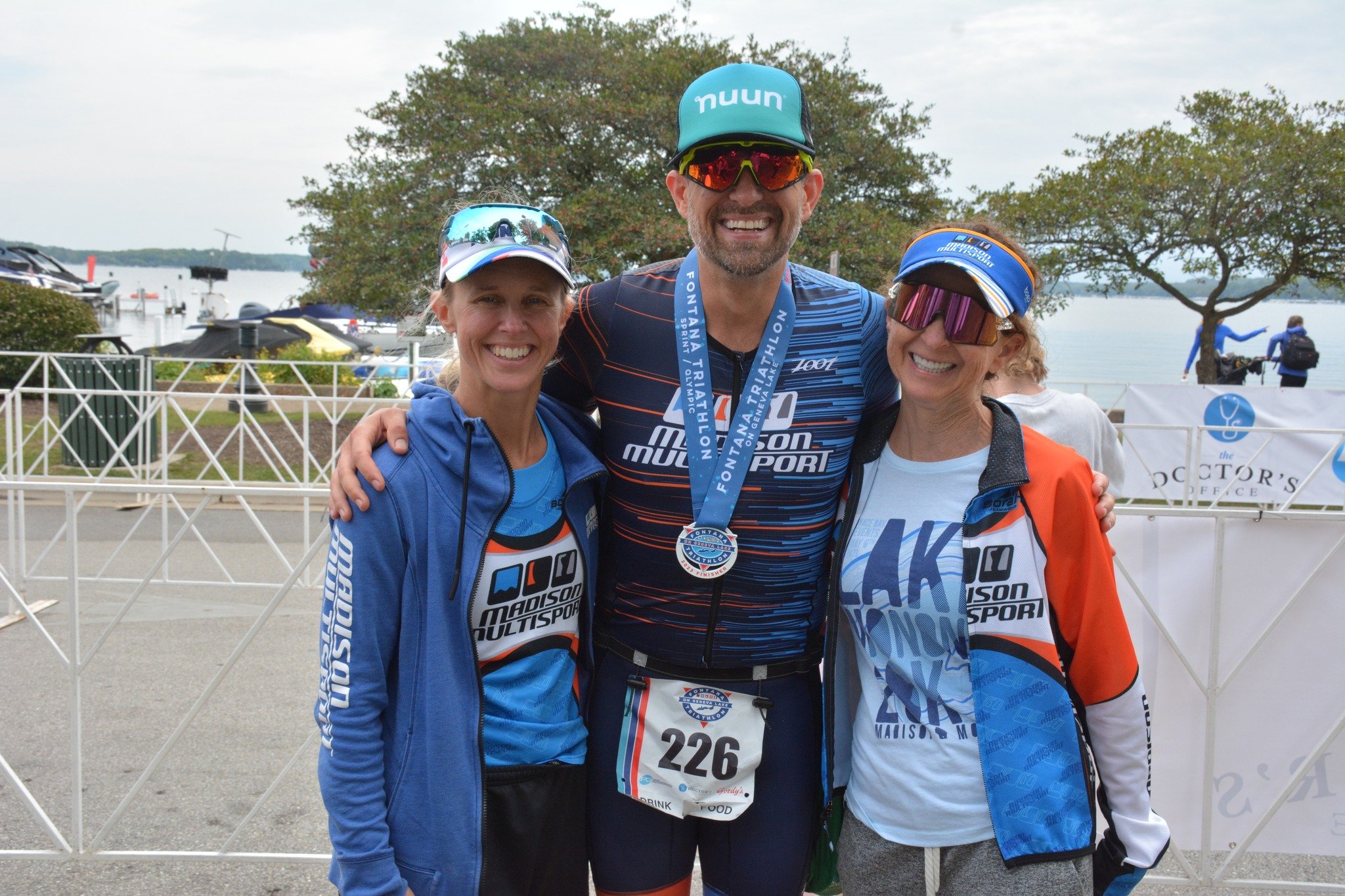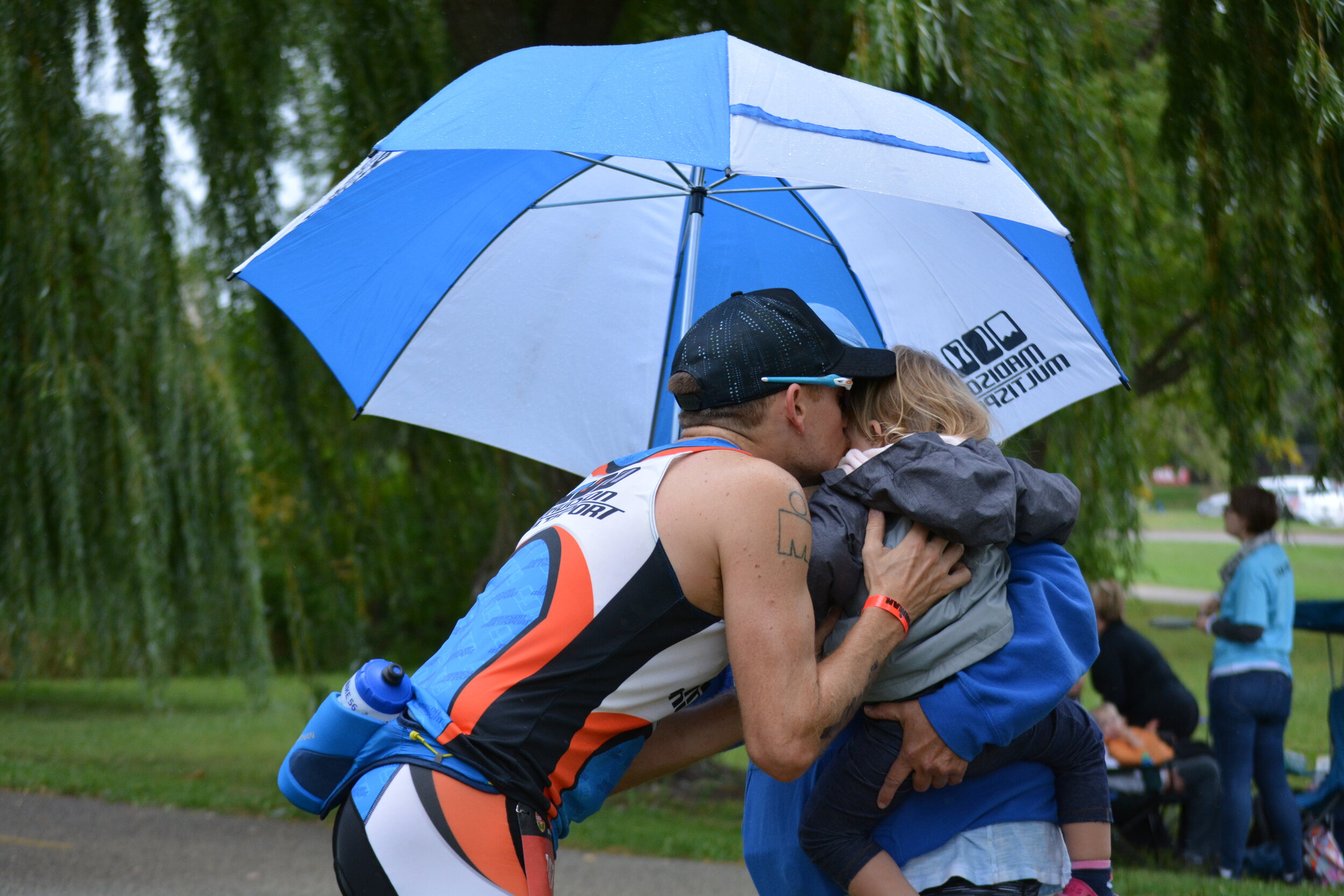Off-Season Goal Setting: Short-Term Wins = Long-Term Sucess
The off-season is the most under appreciated part of a triathlete’s yearly training cycle. It’s when you step back, assess where you are, and set realistic but exciting targets for where you want to go. Without clear goals, it’s easy to lose direction, especially once winter rolls in and training becomes more isolated. Goals too easy, you get bored. Goals too hard, you get discouraged.
Why Set Goals in the Off-Season?
In the October-December months, your race-specific fitness fades, but the off-season is where we can address weaknesses, establish sustainable daily habits, and build physically and mental durability. It’s important to understand that setting data driven goals provides:
CLEAR Direction
Motivation during colder months
A measurable way to track progress
Accountability when training gets quiet
Whether you’re chasing a podium or looking to level up year-over-year, measurable goals is key. When you base your progress off of feeling, you get inconsistent and insecure if progress is really happening.
Short-Term Goals: Win the NOW
Short-term goals are typically 4-12 weeks. They give you immediate structure when racing is far off and help you build toward your long-term vision.
Below are examples of worthwhile, actionable short-term goals.
1. Performance Benchmarks
These goals target pace, power, or swim thresholds.
Examples:
Test your running fitness with an 400m, 800m, or 1 Mile repeat tests. Use that to set a realistic short-term run goal (ex: dropping 5K pace by 10–15 seconds).
Bike: Track threshold watts (FTP) or 5min Max Power (Vo2 Max).
Swim: Measure CSS (critical swim speed) with a 200/400 or 1000 test.
These markers help determine where you stand — and give you concrete numbers to improve before race-specific training begins.
2. Training Volume Targets
A simple and effective way to build consistent momentum is by creating process-based goals:
Run: Hit 30 miles per week
Swim: Reach consistent weekly yardage
Bike: 8 hours per week
These goals reinforce consistency and durability without focusing on high intensity. They’re especially helpful when time or motivation fluctuates in winter.
Example from my own training this winter for my Spring IRONMAN:
“One of my goals is to consistently run 30 miles per week, and keep all my easy runs at 8:00 pace or slower to stay healthy.”
3. Training Style / Structure
Sometimes the goal isn’t just the volume — it’s how you approach training.
Examples:
Block periodization
Returning to technique work
Improving strength through weight training
Having structure gives you something predictable to anchor your weeks.
For example:
“One of my goals is a bi-weekly swim-strength workout where I swim a straight 1500 with buoy + paddles. I time this effort and aim to improve every two weeks to chart progress”
Another:
“I’m committed to 2× weekly strength sessions to stay durable and improve economy. I do these directly after my two hard bike workouts and aim to complete them under 30 minutes”
These aren’t glamorous, but gains come from doing the quiet work consistently.
4. Social & Environmental Goals
When winter hits, training can get lonely and motivation tends to dip. Setting social goals keeps it fun and accountable.
Ideas:
Find a local running group to meet 1–2× per week
Join indoor cycling group rides or online races (Zwift or TP Virtual)
When the racing scene environment fades, be intentional about building one.
Long-Term Goals: Build Toward Your Dream Outcomes
Long-term goals connect where you are today to where you want to be next summer. They drive the direction of your short-term focus.
1. Performance Metrics
Think of these as your goal performance standards:
CSS Swim Pace (1500 swim pace)
20min Power and and/or 2 Hour Power
Desired 5K and/or HM pace
Even if the numbers seem far away, they help guide short-term decision making. For example, wanting to improve your FTP from 200 to 230 may determine that this winter you should emphasize Vo2 Max intensity rather than only Z2 and Z3 intervals.
2. Race-Specific Performance
Define what you want to achieve at your goal race:
“I want to swim X pace, bike X mph/ at X W/kg, and run X per mile.”
“I want to podium or finish in the top 3 in my age group.”
This gives you a framework to reverse-engineer your future training.
Benchmark Against Competition
Research:
What are the top 3 athletes in your AG doing?
What splits did they hit last year?
How close are you?
Then ask:
“What % improvement do I need to get there?”
If you need a 5–7% Bike FTP increase to bridge the gap, now you know the off-season must include structured bike development. If you already bike within 2-3 minutes, focus more on running this winter to bring that gap.
3. Limiter Identification
All long-term performance comes down to identifying your biggest areas of improvement.
Ask:
Where am I weakest?
How do i continue to train and enjoy this sport?
What’s holding me back the most?
What are the most efficient gains I can make?
Maybe:
Your bike power is strong, but you’re losing time in open-water swim confidence.
Will joining a group improve my long term enjoyment?
Your 5K pace is great, but durability is low and you fade late in the run.
You’re aerobically strong but lack mobility, resulting in injury cycles.
Your long-term goals should directly reflect how you’ll attack these limiters with intention.
Bringing It All Together
Your off-season training shouldn’t be random. Pair short-term wins with long-term vision.
Short-Term builds the foundation of a great racing season.
Weekly volume targets
Technique & strength focus
Social structure
Clear testing & benchmarking every 4-8 weeks
Long-Term Goals provides the foundation of whats to come
Define performance goals
Break down GOAL race-day paces
Identify limiters and reverse-engineer
If you align your day-to-day choices with your future ambitions, you’ll build the most important thing an athlete can have which is momentum.
Now is the time to lay your groundwork.
Set your goals. Chase them consistently.
Next season starts today.
If you are interested in coaching for triathlon, cycling, and or running. Take a look at our coaching packages. Even if you don’t live in Madison, we coach athletes all over the nation! Click HERE for more information!




